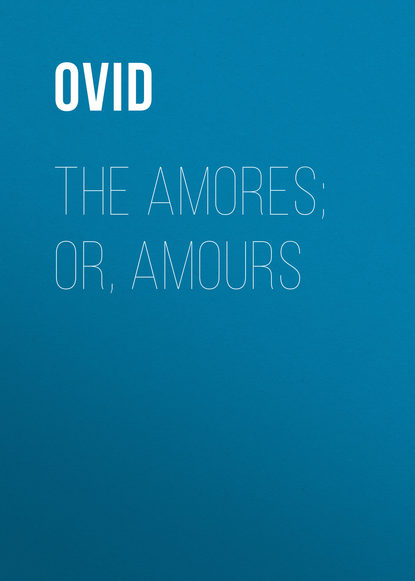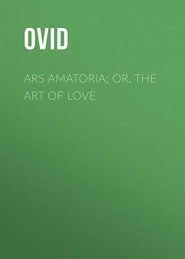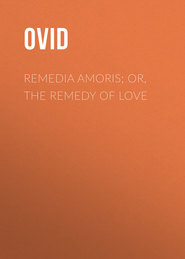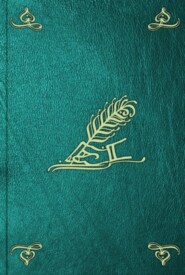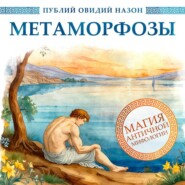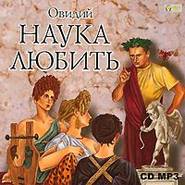По всем вопросам обращайтесь на: info@litportal.ru
(©) 2003-2024.
✖
The Amores; or, Amours
Настройки чтения
Размер шрифта
Высота строк
Поля
599 (return (#x5_x_5_i126))
[ With no boundaries.—Ver. 42. The 'limes' was a line or boundary, between pieces of land belonging to different persons, and consisted of a path, or ditch, or a row of stones. The 'ager limitatus' was the public land marked out by 'limites,' for the purposes of allotment to the citizens. On apportioning the land, a line, which was called 'limes,' was drawn through a given point from East to West, which was called 'decumanus,' and another line was drawn from North to South. The distance at which the 'limites' were to be drawn depended on the magnitude of the squares or 'centuriæ,' as they were called, into which it was purposed to divide the tract.]
601 (return (#x5_x_5_i126))
[ Then was the shore.—Ver. 44. Because they had not as yet learnt the art of navigation.]
602 (return (#x5_x_5_i126))
[ Turreted fortifications.—Ver. 47. Among the ancients the fortifications of cities were strengthened by towers, which were placed at intervals on the walls; they were also generally used at the gates of towns.]
603 (return (#x5_x_5_i126))
[ Why not seek the heavens.—Ver. 50. With what indignation would he not have spoken of a balloon, as being nothing less than a downright attempt to scale the 'tertia régna!']
604 (return (#x5_x_5_i126))
[ Ciesar but recently.—Ver. 52. See the end of the Fifteenth Book of the Metamorphoses, and the Fasti, Book iii. 1. 704.]
605 (return (#x5_x_5_i127))
[ The Senate-house.—Ver. 55. 'Curia'was the name of the place where the Senate held its meetings, such as the 'curia Hostilia,' * Julia,' Marcelli,' and others. Hence arose the custom of calling the Senate itself, in the various Roman towns, by the name of 'curia,' but not the Senate of Rome. He here means to say, that poverty excluded a man from the Senate-house, and that wealth alone was the qualification for the honours of the state.]
606 (return (#x5_x_5_i127))
[ Wealth alone confers honours —Ver. 55. The same expression occurs in the Fasti, Book i. 1. '217, where a similar complaint is made on the worldly-mindedness of the age.]
607 (return (#x5_x_5_i127))
[ The Field of Mars.—Ver. 57. The 'comitia,' or meetings for the elections of the magistrates, were held on the 'Campus Martius' or field of Mars. See the Notes to the Fasti, Book i. 1. 53.]
608 (return (#x5_x_5_i127))
[ And the Forum. —Ver. 57. The 'Fora' were of two kinds at Rome; some being market-places, where all kinds of goods were exposed for sale, while others were solely courts of justice. Among the latter is the one here mentioned, which was simply called 'Forum,' so long as it was the only one of its kind existing at Rome, and, indeed, after that period, as in the present instance. At a later period of the Republic, and under the Empire, when other 'fora,' for judicial purposes, were erected, this Forum' was distinguished by the epithets 'vetus,' 'old,' or 'magnum, 'great.' It was situate between the Capitoline and Palatine hills, and was originally a swamp or marsh, which was filled up hy Romulus or Tatius. It was chiefly used for judicial proceedings, and is supposed to have been surrounded with the hankers' shops or offices, 'argentaria.' Gladiatorial games were occasionally held there, and sometimes prisoners of war, and faithless legionary soldiers, were there put to death. A second 'Forum,' for judicial purposes, was erected hy Julius Caesar, and was called hy his name. It was adorned with a splendid temple of Venus Genitrix. A third was built hy Augustus, and was called 'Forum Augusts' It was adorned with a temple of Mars, and the statues of the most distinguished men of the republic. Having suffered severely from fire, this Forum was restored by the Emperor Hadrian. It is mentioned in the Fourth Book of the Pontic Epistles, Ep. xv. 1. 16. See the Fasti, Book iii. 1. 704.]
609 (return (#x5_x_5_i128))
[ With regard to me.—Ver. 63. He says that because he is poor she makes excuses, and pretends that she is afraid of her husband and those whom he has set to watch her.]
610 (return (#x5_x_5_i132))
[ Of thy own inspiration.—Ver. 5. Burmann remarks, that the word 'opus' is especially applied to the sacred rites of the Gods; literally 'the priest of thy rites.']
611 (return (#x5_x_5_i132))
[ The erected pile—Ver. 6. Among the Romans the corpse was burnt on a pile of wood, which was called 'pyra,' or 'rogus.' According to Servius, it was called by the former name before, and hy the latter after, it was lighted, but this distinction is not observed by the Latin writers.]
612 (return (#x5_x_5_i132))
[ The cruel boar.—Ver. 16. He alludes to the death of Adonis, by the tusk of a boar, which pierced his thigh. See the Tenth Book of the Metamorphoses, l. 716.]
613 (return (#x5_x_5_i133))
[ We possess inspiration.—Ver. 17. In the Sixth Book of the Fasti, 1. 6, he says. 'There is a Deity within us (Poets): under his guidance we glow with inspiration; this poetic fervour contains the impregnating. particles of the mind of the Divinity.']
614 (return (#x5_x_5_i133))
[ She lays her.—Ver. 20. It must be remembered that, whereas we personify Death as of the masculine gender; the Romans represented the grim tyrant as being a female. It is a curious fact that we find Death very rarely represented as a skeleton on the Roman monuments. The skeleton of a child has, in one instance, been found represented on one of the tombs of Pompeii. The head of a horse was one of the most common modes of representing death, as it signified departure.]
615 (return (#x5_x_5_i133))
[ Ismarian Orpheus.—Ver. 21. Apollo and the Muse Calliope were the parents of Orpheus, who met with a cruel death. See the beginning of the Eleventh Book of the Metamorphoses.]
616 (return (#x5_x_5_i133))
[ Linus! Alas!—Ver. 23. 'Ælinon' was said to have been the exclamation of Apollo, on the death of his son, the poet Linus. The word is derived from the Greek, 'di Aivôç,' 'Alas! Linus.' A certain poetic measure was called by this name; but we learn from Athenaeus, that it was not always confined to pathetic subjects. There appear to have been two persons of the name of Linus. One was a Theban, the son of Apollo, and the instructor of Orpheus and Hercules, while the other was the son of an Argive princess, by Apollo, who, according to Statius, was torn to pieces in his infancy by dogs.]
617 (return (#x5_x_5_i133))
[ The son of Mæon. —Ver. 25. See the Note to the ninth line of the Fifteenth Elegy of the First Book of the Amores.]
618 (return (#x5_x_5_i133))
[ Slow web woven.—Ver. 30. The web of Penelope.]
619 (return (#x5_x_5_i133))
[ Nemesis, so Delia.—Ver. 31. Nemesis and Delia were the names of damsels whose charms were celebrated by Tibullus.]
620 (return (#x5_x_5_i134))
[ Sacrifice avail thee.—Ver. 33. He alludes to two lines in the First Elegy of Tibullus.]
621 (return (#x5_x_5_i134))
[ What lying apart.—Ver. 34. During the festival of Isis, all intercourse with men was forbidden to the female devotees.]
622 (return (#x5_x_5_i134))
[ The yawning tomb.—Ver. 38. The place where a person was burnt was called 'bustum,' if he was afterwards buried on the same spot, and 'ustrina,' or 'ustrinum,' if he was buried at a different place. See the Notes to the Fasti, B. ii. 1. 531.]
623 (return (#x5_x_5_i135))
[ The towers of Eryx—Ver. 45. He alludes to Venus, who had a splendid temple on Mount Eryx, in Sicily.]
624 (return (#x5_x_5_i135))
[ The Phæacian land.—Ver. 47. The Phæacians were the ancient people of Corcyra, now the isle of Corfu. Tibullus had attended Messala thither, and falling ill, was unable to accompany his patron on his return to Rome, on which he addressed to him the First Elegy of his Third Book, in which he expressed a hope that he might not die among the Phæacians. To this Elegy Ovid here refers. Tibullus afterwards recovered, and died at Rome. When he penned this line, Ovid little thought that his own bones would one day rest in a much more ignoble spot than Corcyra, and one much more repulsive to the habits of civilization.]
[ With no boundaries.—Ver. 42. The 'limes' was a line or boundary, between pieces of land belonging to different persons, and consisted of a path, or ditch, or a row of stones. The 'ager limitatus' was the public land marked out by 'limites,' for the purposes of allotment to the citizens. On apportioning the land, a line, which was called 'limes,' was drawn through a given point from East to West, which was called 'decumanus,' and another line was drawn from North to South. The distance at which the 'limites' were to be drawn depended on the magnitude of the squares or 'centuriæ,' as they were called, into which it was purposed to divide the tract.]
601 (return (#x5_x_5_i126))
[ Then was the shore.—Ver. 44. Because they had not as yet learnt the art of navigation.]
602 (return (#x5_x_5_i126))
[ Turreted fortifications.—Ver. 47. Among the ancients the fortifications of cities were strengthened by towers, which were placed at intervals on the walls; they were also generally used at the gates of towns.]
603 (return (#x5_x_5_i126))
[ Why not seek the heavens.—Ver. 50. With what indignation would he not have spoken of a balloon, as being nothing less than a downright attempt to scale the 'tertia régna!']
604 (return (#x5_x_5_i126))
[ Ciesar but recently.—Ver. 52. See the end of the Fifteenth Book of the Metamorphoses, and the Fasti, Book iii. 1. 704.]
605 (return (#x5_x_5_i127))
[ The Senate-house.—Ver. 55. 'Curia'was the name of the place where the Senate held its meetings, such as the 'curia Hostilia,' * Julia,' Marcelli,' and others. Hence arose the custom of calling the Senate itself, in the various Roman towns, by the name of 'curia,' but not the Senate of Rome. He here means to say, that poverty excluded a man from the Senate-house, and that wealth alone was the qualification for the honours of the state.]
606 (return (#x5_x_5_i127))
[ Wealth alone confers honours —Ver. 55. The same expression occurs in the Fasti, Book i. 1. '217, where a similar complaint is made on the worldly-mindedness of the age.]
607 (return (#x5_x_5_i127))
[ The Field of Mars.—Ver. 57. The 'comitia,' or meetings for the elections of the magistrates, were held on the 'Campus Martius' or field of Mars. See the Notes to the Fasti, Book i. 1. 53.]
608 (return (#x5_x_5_i127))
[ And the Forum. —Ver. 57. The 'Fora' were of two kinds at Rome; some being market-places, where all kinds of goods were exposed for sale, while others were solely courts of justice. Among the latter is the one here mentioned, which was simply called 'Forum,' so long as it was the only one of its kind existing at Rome, and, indeed, after that period, as in the present instance. At a later period of the Republic, and under the Empire, when other 'fora,' for judicial purposes, were erected, this Forum' was distinguished by the epithets 'vetus,' 'old,' or 'magnum, 'great.' It was situate between the Capitoline and Palatine hills, and was originally a swamp or marsh, which was filled up hy Romulus or Tatius. It was chiefly used for judicial proceedings, and is supposed to have been surrounded with the hankers' shops or offices, 'argentaria.' Gladiatorial games were occasionally held there, and sometimes prisoners of war, and faithless legionary soldiers, were there put to death. A second 'Forum,' for judicial purposes, was erected hy Julius Caesar, and was called hy his name. It was adorned with a splendid temple of Venus Genitrix. A third was built hy Augustus, and was called 'Forum Augusts' It was adorned with a temple of Mars, and the statues of the most distinguished men of the republic. Having suffered severely from fire, this Forum was restored by the Emperor Hadrian. It is mentioned in the Fourth Book of the Pontic Epistles, Ep. xv. 1. 16. See the Fasti, Book iii. 1. 704.]
609 (return (#x5_x_5_i128))
[ With regard to me.—Ver. 63. He says that because he is poor she makes excuses, and pretends that she is afraid of her husband and those whom he has set to watch her.]
610 (return (#x5_x_5_i132))
[ Of thy own inspiration.—Ver. 5. Burmann remarks, that the word 'opus' is especially applied to the sacred rites of the Gods; literally 'the priest of thy rites.']
611 (return (#x5_x_5_i132))
[ The erected pile—Ver. 6. Among the Romans the corpse was burnt on a pile of wood, which was called 'pyra,' or 'rogus.' According to Servius, it was called by the former name before, and hy the latter after, it was lighted, but this distinction is not observed by the Latin writers.]
612 (return (#x5_x_5_i132))
[ The cruel boar.—Ver. 16. He alludes to the death of Adonis, by the tusk of a boar, which pierced his thigh. See the Tenth Book of the Metamorphoses, l. 716.]
613 (return (#x5_x_5_i133))
[ We possess inspiration.—Ver. 17. In the Sixth Book of the Fasti, 1. 6, he says. 'There is a Deity within us (Poets): under his guidance we glow with inspiration; this poetic fervour contains the impregnating. particles of the mind of the Divinity.']
614 (return (#x5_x_5_i133))
[ She lays her.—Ver. 20. It must be remembered that, whereas we personify Death as of the masculine gender; the Romans represented the grim tyrant as being a female. It is a curious fact that we find Death very rarely represented as a skeleton on the Roman monuments. The skeleton of a child has, in one instance, been found represented on one of the tombs of Pompeii. The head of a horse was one of the most common modes of representing death, as it signified departure.]
615 (return (#x5_x_5_i133))
[ Ismarian Orpheus.—Ver. 21. Apollo and the Muse Calliope were the parents of Orpheus, who met with a cruel death. See the beginning of the Eleventh Book of the Metamorphoses.]
616 (return (#x5_x_5_i133))
[ Linus! Alas!—Ver. 23. 'Ælinon' was said to have been the exclamation of Apollo, on the death of his son, the poet Linus. The word is derived from the Greek, 'di Aivôç,' 'Alas! Linus.' A certain poetic measure was called by this name; but we learn from Athenaeus, that it was not always confined to pathetic subjects. There appear to have been two persons of the name of Linus. One was a Theban, the son of Apollo, and the instructor of Orpheus and Hercules, while the other was the son of an Argive princess, by Apollo, who, according to Statius, was torn to pieces in his infancy by dogs.]
617 (return (#x5_x_5_i133))
[ The son of Mæon. —Ver. 25. See the Note to the ninth line of the Fifteenth Elegy of the First Book of the Amores.]
618 (return (#x5_x_5_i133))
[ Slow web woven.—Ver. 30. The web of Penelope.]
619 (return (#x5_x_5_i133))
[ Nemesis, so Delia.—Ver. 31. Nemesis and Delia were the names of damsels whose charms were celebrated by Tibullus.]
620 (return (#x5_x_5_i134))
[ Sacrifice avail thee.—Ver. 33. He alludes to two lines in the First Elegy of Tibullus.]
621 (return (#x5_x_5_i134))
[ What lying apart.—Ver. 34. During the festival of Isis, all intercourse with men was forbidden to the female devotees.]
622 (return (#x5_x_5_i134))
[ The yawning tomb.—Ver. 38. The place where a person was burnt was called 'bustum,' if he was afterwards buried on the same spot, and 'ustrina,' or 'ustrinum,' if he was buried at a different place. See the Notes to the Fasti, B. ii. 1. 531.]
623 (return (#x5_x_5_i135))
[ The towers of Eryx—Ver. 45. He alludes to Venus, who had a splendid temple on Mount Eryx, in Sicily.]
624 (return (#x5_x_5_i135))
[ The Phæacian land.—Ver. 47. The Phæacians were the ancient people of Corcyra, now the isle of Corfu. Tibullus had attended Messala thither, and falling ill, was unable to accompany his patron on his return to Rome, on which he addressed to him the First Elegy of his Third Book, in which he expressed a hope that he might not die among the Phæacians. To this Elegy Ovid here refers. Tibullus afterwards recovered, and died at Rome. When he penned this line, Ovid little thought that his own bones would one day rest in a much more ignoble spot than Corcyra, and one much more repulsive to the habits of civilization.]





